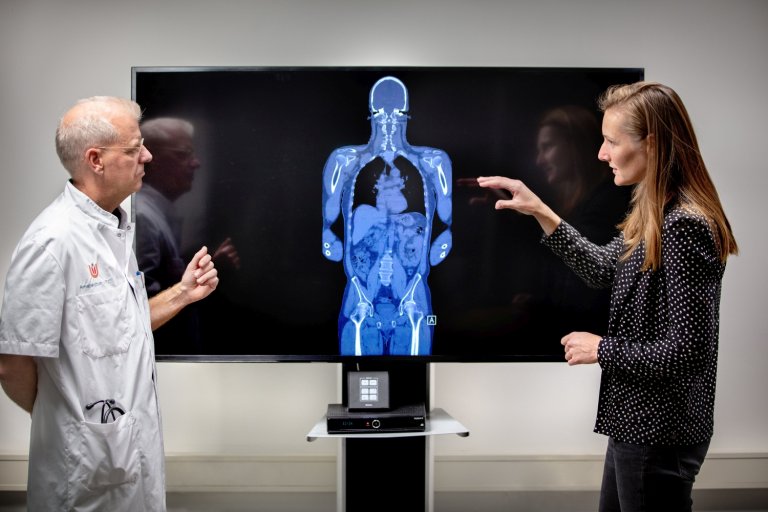Hereditary Skeletal Disorders / A New Expertise Center at Human Genetics Amsterdam UMC
SECTION: CENTER FOR CONNECTIVE TISSUE RESEARCH
In 2021, the Center for Connective Tissue Research of the Department of Human Genetics – Amsterdam UMC was recognized by the Dutch Federation of Academic Medical Centers (NFU) as a national expertise center.

At the Center for Connective Tissue Research (CCT), we are dedicated to the study of monogenic bone disorders. Our mission is to investigate the genetic causes and unravel the underlying biologic mechanisms of diseases such as osteogenesis imperfecta (OI), fibrodysplasia ossificans progressiva, hereditary osteoporosis, fibrous dysplasia, and Camurati-Engelmann disease.

Hereditary bone disorders
Hereditary skeletal disorders account for approximately 10% of all genetic diseases. Nevertheless, these monogenetic bone disorders are rare. For example, there are about 1000 patients with osteogenesis imperfecta in the Netherlands. Most patients affected by hereditary bone disorders suffer from chronic and severe symptoms and effective treatments are generally unavailable.
From bedside to bench and vice versa
Together with the section Clinical Genetics and Department of Endocrinology, we are exploring clinical aspects of these diseases in order to fully characterize the disease burden and understand the impact of the underlying biology. This is done both in the context of a weekly multidisciplinary expert meetings (MDO) for rare bone diseases and preclinical research projects.
On a mission to find effective treatments
In line with the missions of the Department of Human Genetics and Emma Children’s Hospital, the development of effective treatments is a top priority for the Centre for Connective Tissue diseases. Our research projects include drug screening using unique cell models developed in our lab, the production of stem cells for bone tissue regeneration, gene therapy development, and the characterization of biomaterials. In addition, we are also creating genetically engineered mouse models for these hereditary diseases in order to facilitate the preclinical validation process of potential therapies.
National accreditation by the Dutch Federation of Academic Medical Centers
In the evaluation, appreciation was given to the high-quality preclinical research and the expertise of human genetics in the molecular diagnosis of hereditary skeletal disorders. Equally complemented were the clinical care guidelines and studies which have been organized in close collaboration with Dr. Marelise Eekhoff, Department of Endocrinology, within our network of the Amsterdam Bone Center.